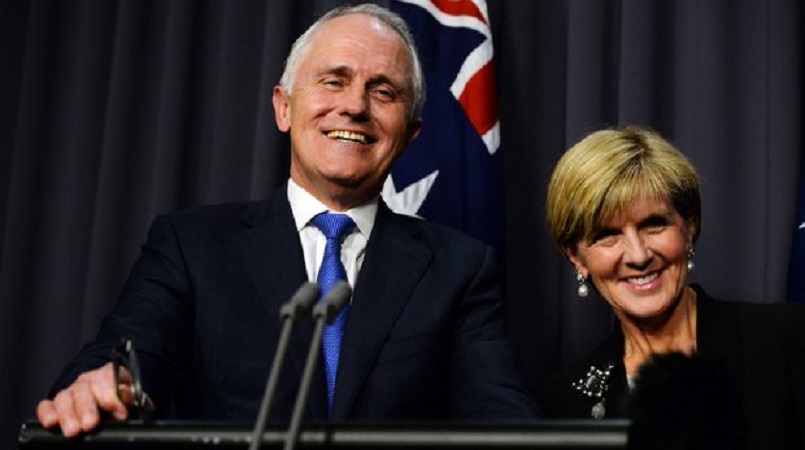
Pacific leaders are hopeful Australia's new prime minister will champion climate change action for their countries, despite Malcolm Turnbull already ruling out changes to his country's climate policy.
The leaders of Tuvalu, Papua New Guinea and Fiji have expressed hope that Mr Turnbull, who was this week sworn in as prime minister after ousting Tony Abbott as Liberal Party leader, could be a champion for Pacific countries battling rising sea levels and intensifying weather systems.
The change in Canberra came a week after the Pacific Islands Forum meeting highlighted a growing chasm between the Pacific countries and Australia and New Zealand on the issue of climate change.
The two sides agreed to disagree on the Pacific's call for emissions to be lowered to the point where global temperatures would not increase more than 1.5°C above pre-industrial levels, with New Zealand and Australia opting to stick to their target of 2°C, saying that any further reduction would have an adverse affect on their economies.
In response to the Forum calls by Pacific states for greater action on emissions reduction, Tony Abbott and New Zealand's prime minister, John Key, suggested the Pacific should be putting more pressure on China, which is a far bigger emitter than either of the Pacific Islands region's metropolitan powers.
However, the Prime Minister of Tuvalu, Enele Sopoaga, said Australia's approach at the forum and attitude towards climate change was discouraging.
He said a quip by Australia's immigration minister Peter Dutton about cilmate change has shone a light on the country's indifference and he is reassessing the relationship between the two countries.
"This is very disheartening for Tuvalu. It makes us think about all our talks about partnership and friendship. We are not sure whether we are in the position to be in partnership with any assistance from Australia if that's the attitude."
Yet Mr Sopoaga was holding out hope that the new leadership of Malcolm Turnbull will make a difference.
"I think he's very progressive on that (climate change) and we are very hopeful a change in leadership in Australia will perhaps give a stronger leadership on climate change. I think it's very timely and I think Turnbull over the years, by the look of his records as we understand it, has demonstrated very strong leadership and I think that is what is needed now, not only in our context in the Pacific Islands forum but also for the global community to have leadership with responsibililty and care...[especially] as we work our way towards New York and towards COP 21."
In the past Malcolm Turnbull has attacked Tony Abbott's record on the environment and climate change, calling for a "stong, credible policy framework" to cut carbon emissions.
Papua New Guinea's prime minister, Peter O'Neill has also expressed hope that the two countries will cooperate more closely on climate change, saying the people of Pacific island states are concerned at the effect it is having on many lives.
Fiji's Prime Minister, too, has called for Mr Turnbull to do more. In his congratulatory letter, Frank Bainimarama appealed for him to reconsider Australia's position and take into account the grave danger to Pacific countries.
However, an Australian foreign policy academic has warned that a new Prime Minister is unlikely to mean any change to Australia's climate change policy.
Jonathan Pryke, from Sydney's Lowy Institute, said Mr Turnbull's attention will be very much focussed on domestic issues, leaving foreign policy to his deputy Julie Bishop, who remains foreign minister.
Mr Pryke said Mr Turnbull's past statements won't necessarily translate to policy changes.
"Turnbull has already made it clear that there will be no changing of Australia's policy with regards to what targets we will be taking to the [COP 21] negotiations, but I think we can expect to see at least a lightening of the tone with regard to discussions with Pacific countries on climate change issues.
Malcolm Turnbull's appointment makes him Australia's fifth Prime Minister in eight years. Hopes that he could advance the cause for greater action on climate change may rest on the prospect of the new prime minister lasting the distance in the position, something which is far from a certainty these days in Canberra.
